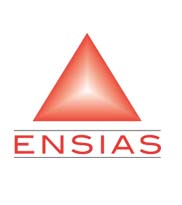- Accueil
-
L'Ecole
-
FORMATIONS
-
FORMATION INGENIEUR
-
Nouvelles filières offertes
- Ingénierie Intélligence Artificielle (2IA)
- Smart Supply Chain & Logistics (2SCL)
- Business Intelligence & Analytics (BI&A)
- Génie de la Data (GD)
- Génie Logiciel (GL)
- Ingénierie Digitale pour la Finance (IDF)
- Smart System Engineering (SSE)
- Data and Software Sciences (D2S)
- Cybersécurité, Cloud et Informatique Mobile (CSCC)
- REGLEMENT DES ETUDES DE L’ENSIAS CYCLE INGENIEUR
-
Nouvelles filières offertes
-
FORMATION INGENIEUR
- FORMATION CONTINUE
-
Recherche
- INTERNATIONAL
- ENTREPRISES
- VIE ESTUDIANTINE
- BIBLIOTHEQUE
LES DERNIÈRES INFORMATIONS
Reviewing the features and functionalities of contraception mPHRs
| Titre | Reviewing the features and functionalities of contraception mPHRs |
| Publication Type | Journal Article |
| Year of Publication | 2022 |
| Authors | Kharbouch, M, Idri, A, Fernandez-Aleman, JL, Redman, L, Toval, A, Stelate, Y |
| Journal | Health Policy and Technology |
| Volume | 11 |
| Mots-clés | awareness, contraception, Data availability, female, human, information security, medical record, Monitoring, Preferred Reporting Items for Systematic Reviews and Meta-Analyses, questionnaire, recording, reminder system, reproductive health, Review, social support, Systematic Review |
| Abstract | Background and objective. Women's circumstances and preferences tend to change over times signifying that accessing and choosing a contraceptive method during their reproductive life is crucial. By preventing unintended pregnancies and reducing the need for abortion, effective contraception ensures women's well-being and autonomy, improves their social and economic role, and enables them to fully participate in society while supporting the health and development of their communities. The use of mobile applications (apps) for contraception is considered a promising approach by which to facilitate access to a reproductive health service of this nature and spread awareness about contraception. The aim of this paper is, therefore, to assess the features and functionalities of the contraception mPHRs (Mobile Personal Health Records) that are available on both the Android and iOS platforms. Methods. In order to select, extract data from and evaluate the features and functionalities of existing contraception apps, an analysis process based on the well-known Systematic Literature Review (SLR) protocol was conducted for the contraception apps that are available on both the Android and iOS app platforms. The analysis and assessment of selected apps' features were performed in accordance with a twenty-seven item assessment questionnaire. The latter was developed on the basis of the scientific literature concerning contraception, and a preliminary analysis of the contraception apps currently available. Results. A total of 54 contraception apps were selected, including 38 for Android, 4 for iOS, and 12 for crossed platform apps. The results showed that only 11% of the apps selected do support the World Health Organization's (WHO) medical eligibility criteria for contraception (MEC), and that barely 43% provide relevant information about contraceptive methods, their efficiency, risks, and contraindications. Conclusion. This study will help users, eHealth apps providers, and developers. Users on the one hand will be able to better select the most appropriate contraceptive apps. On the other hand, both eHealth application providers and developers can thereby: (1) identify the relevant features and functionalities implemented by the top-scoring contraceptive apps, and (2) distinguish contraception-related aspects that require further efforts to be properly addressed and improved. © 2022 |
| URL | https://www.scopus.com/inward/record.uri?eid=2-s2.0-85132651990&doi=10.1016%2fj.hlpt.2022.100633&partnerID=40&md5=b101e386be125c92bddf8bf212de3a39 |
| DOI | 10.1016/j.hlpt.2022.100633 |
Revues:
LIENS UTILES
Localisation
Contactez-nous
ENSIAS
 Avenue Mohammed Ben Abdallah Regragui, Madinat Al Irfane, BP 713, Agdal Rabat, Maroc
Avenue Mohammed Ben Abdallah Regragui, Madinat Al Irfane, BP 713, Agdal Rabat, Maroc
![]() Télécopie : (+212) 5 37 68 60 78
Télécopie : (+212) 5 37 68 60 78
![]() Secrétariat de direction : 06 61 48 10 97
Secrétariat de direction : 06 61 48 10 97
Secrétariat général : 06 61 34 09 27
Service des affaires financières : 06 61 44 76 79
Service des affaires estudiantines : 06 62 77 10 17 / n.mhirich@um5s.net.ma
CEDOC ST2I : 06 66 39 75 16
Résidences : 06 61 82 89 77
- Compteur de visiteurs:634,776
Education - This is a contributing Drupal Theme
Design by WeebPal.
Design by WeebPal.



































